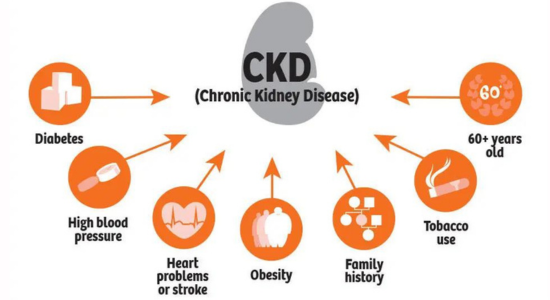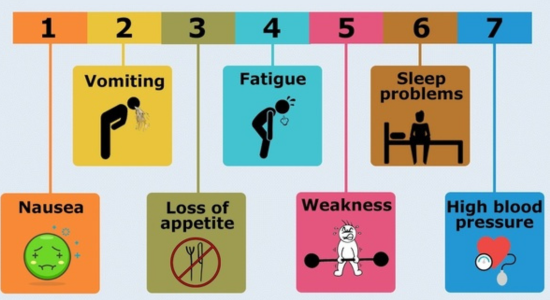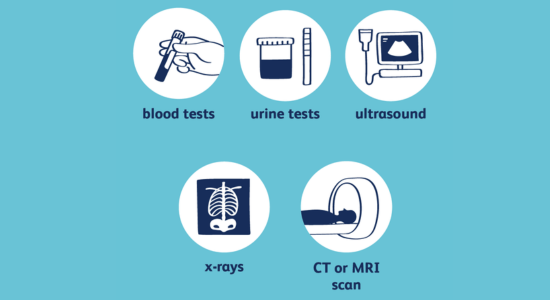Chronic Kidney Disease Treatment in Bathinda
Chronic Kidney Disease Treatment in Bathinda: A Comprehensive Guide

Understanding Chronic Kidney Disease
Chronic Kidney Disease (CKD) is characterized by the gradual loss of kidney function over months or years. The kidneys are vital organs responsible for filtering waste products and excess fluids from the blood, regulating blood pressure, and maintaining electrolyte balance. CKD can lead to kidney failure if not managed properly.
Stages of Chronic Kidney Disease
- Stage 1: Kidney damage with normal or increased GFR (GFR ≥ 90 mL/min/1.73 m²).
- Stage 2: Kidney damage with mild decrease in GFR (GFR 60-89 mL/min/1.73 m²).
- Stage 3: Moderate decrease in GFR (GFR 30-59 mL/min/1.73 m²).
- Stage 4: Severe decrease in GFR (GFR 15-29 mL/min/1.73 m²).
- Stage 5: Kidney failure (GFR < 15 mL/min/1.73 m²), also known as end-stage renal disease (ESRD).
Causes of Chronic Kidney Disease

Chronic Kidney Disease can result from a variety of underlying conditions and factors, including:
- Diabetes: High blood sugar levels can damage blood vessels in the kidneys, leading to CKD.
- Hypertension: Chronic high blood pressure can harm the kidneys over time.
- Glomerulonephritis: Inflammation of the kidney’s filtering units (glomeruli) can lead to CKD.
- Polycystic Kidney Disease: A genetic disorder causing fluid-filled cysts to develop in the kidneys.
- Chronic Urinary Tract Infections: Persistent infections can damage the kidneys.
- Obstructive Uropathy: Conditions causing blockages in the urinary tract can lead to kidney damage.
Symptoms of Chronic Kidney Disease

The symptoms of CKD may not be apparent in the early stages but can become noticeable as the disease progresses. Common symptoms include:
- Fatigue: Feeling unusually tired or weak.
- Swelling: Fluid retention leading to swelling in the legs, ankles, or feet.
- Changes in Urination: Increased or decreased frequency of urination, or blood in the urine.
- Shortness of Breath: Fluid buildup in the lungs can cause breathing difficulties.
- Nausea and Vomiting: Accumulation of waste products in the blood can lead to digestive issues.
- Loss of Appetite: Decreased desire to eat and unexplained weight loss.
- Persistent Itching: Itching due to the buildup of waste products in the blood.
Diagnosis of Kidney Stones

Accurate diagnosis of CKD is essential for effective treatment. The following methods are commonly used:
- Blood Tests: To measure kidney function markers such as creatinine and blood urea nitrogen (BUN), and to estimate the glomerular filtration rate (GFR).
- Urine Tests: To check for the presence of protein, blood, or other abnormalities in the urine.
- Imaging Tests: Ultrasound or CT scans to assess the size and structure of the kidneys and detect any obstructions or abnormalities.
- Kidney Biopsy: A procedure where a small sample of kidney tissue is examined to determine the cause of kidney damage.
Conclusion
Chronic Kidney Disease is a serious condition that requires a comprehensive approach to treatment and management. In Bathinda, patients have access to a range of advanced treatment options and experienced healthcare providers who offer specialized care for CKD. From lifestyle modifications and medical management to dialysis and kidney transplantation, Bathinda’s healthcare facilities are equipped to handle all aspects of CKD treatment.
Preventing CKD progression involves making lifestyle changes, managing underlying conditions, and adhering to medical advice. By staying informed and proactive, individuals with CKD can effectively manage their condition and improve their quality of life.
If you or a loved one is experiencing symptoms of CKD or requires treatment, seeking medical attention promptly is essential. Bathinda’s medical community is ready to provide the necessary care and support for effective Chronic Kidney Disease treatment. With the right approach and resources, managing CKD and maintaining a healthy, fulfilling life is achievable.